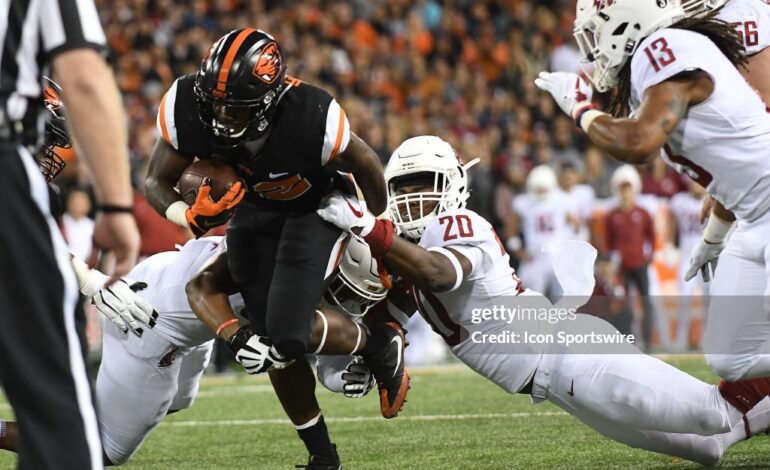Red Sox ownership fired Chaim Bloom for doing their dirty work.
He became their scapegoat.
We went from “sustained success” and “remaining competitive” to “championships and winning baseball at the MLB level,” as CEO Sam Kennedy put it, real quick.
Kennedy’s statement alludes to the Red Sox not winning as the reason for firing Chaim Bloom. But how does anybody win in the same situation Chaim was in most of his tenure with the Sox?
Despite the hand dealt him, Bloom left Boston in prime position to begin their championship window in 2024.
The Sox are positioned well to sign top free agents and make significant trades this winter if John Henry allows.
The course Chaim Bloom set Boston on cannot change. It must not change.
The rebuild we just went through the last four years will have been for nothing if Henry and Co. pivot back to the Dave Dombrowski model.
We don’t want to go through another rebuild again in a few years, do we? Are we all not sick and tired of the worst-to-first-to-worst-to-first-again rollercoaster?
Mistakes and Missed Opportunities Must’ve Contributed to His Ouster
Embed from Getty ImagesAdmittedly, Chaim Bloom had many misses and mistakes, and some reported missed opportunities during his Red Sox tenure, which surely had something to do with him being fired.
Misses, Failures, and Miscalculations
- Bloom defended the lack of deadline moves this year by saying the Red Sox were underdogs to make the playoffs, then only 1.5 games back of a postseason spot. “Underdog” shirts popped up in the dugout shortly after. He wasn’t wrong. But don’t say that publicly.
- He didn’t add to the rotation at the 2023 trade deadline, though players publicly asked for pitching help. The Red Sox fell out of contention a few weeks later.
- Chaim probably should’ve done more to replace Trevor Story than shifting Enrique Hernandez to shortstop and opting for a depth approach. (How much could he have done on short notice?)
- Starter after starter signed elsewhere this past offseason for one reason or another, so the Red Sox had to settle on Corey Kluber (clearly not their first choice).
- He should’ve sold in 2022 instead of going over the competitive balance tax. And last year, he kept the asking prices too high for guys like J.D. Martinez, Nathan Eovaldi, etc.
- The mistake wasn’t trading Hunter Renfroe. The error was not replacing his production, having Jackie Bradley Jr., a fourth outfielder by then, play right field almost daily.
- The now-former Red Sox chief baseball officer didn’t negotiate with Xander Bogaerts in good faith (or was that ownership?) and insisted publicly Bogey was the top priority when he wasn’t.
- The Red Sox have been in the middle of a rebuild, but the lack of depth in every facet throughout Chaim Bloom’s tenure was so apparent. Much of the 2022 season’s disappointment is due to a lack of appropriate depth to cover all the injuries. Depth was better this year, though, allowing the Sox to stay afloat as long as they did.
There are more miscalculations and mistakes from Bloom. These are just a few egregious examples.
Missed Opportunities
Most of Chaim Bloom’s reported missed opportunities, particularly at the 2023 trade deadline; the Red Sox are better off that he didn’t pull the trigger, even if they got him fired.
- He could have traded James Paxton in August for a major league-ready back-end starter. And his asking price for Paxton remained sky-high. (The Red Sox were 1.5 games back of a playoff spot and only had three actual starters with Paxton, remember.)
- He could’ve unloaded Chris Sale‘s contract at last year’s deadline and gotten players of some caliber back in the process.
- He could’ve traded Justin Turner to the Marlins for pitcher Edward Cabrera at this year’s deadline.
- And he could’ve traded Alex Verdugo to the Yankees for starter Clarke Schmidt this year.
The Sale and J.T. reports are the only ones I’d be willing to question even a little. For the other two, the returns don’t thrill me.
The Narrative Changed at Some Point in Time, I Guess
Since Chaim Bloom was fired, numerous reports have come out about him being too methodical and process-oriented, to the point of seeming indecisive.
He reportedly had to win every move, so much so that he supposedly agonized over whether he did the right thing signing Story and Masataka Yoshida.
The missed opportunities above seemingly line up with the reports of his supposed indecisiveness.
If true, okay, ownership didn’t view him as the guy to make the necessary moves to compete in 2024 and beyond.
But at the same time, ownership can’t overcorrect — again — hiring a Dombrowski to spend recklessly and trade every prospect to win now at the expense of the sustainable model Bloom set up the foundation of.
Red Sox Fired Chaim Bloom for Losing but Can Win Thanks to Him
Embed from Getty ImagesChaim Bloom entered a bad situation when he took the Red Sox job.
By the end of the 2019 season, the Red Sox payroll was at $245 million, pushing the third tier of CBT penalties, which John Henry had paid in four of the previous five seasons. Mookie Betts wasn’t signing, so Henry mandated Bloom trade him and directed him to slash payroll.
Payroll dropped from $245 million at the end of ’19 to $182 million in 2020, all while having a bottom-of-the-barrel farm system.
Additionally, Alex Cora was gone for ’20 for his role in the Astros’ sign-stealing scandal. The Red Sox lost a draft pick due to their sign-stealing scandal. Plus, Sale had Tommy John surgery that March, then the pandemic hit.
How does Chaim win at the MLB level with a significantly reduced payroll and numerous bad/expensive contracts taking up large portions of said reduced payroll?
And how does he win with a bottom-feeder minor league system that didn’t produce cheap young impact talent until 2023?
His predecessor won’t have to deal with what he had to deal with.
Chaim Bloom Rebuilt/Retooled Red Sox Minor League System
At the end of Dave Dombrowski’s reign, Boston’s minor league system ranked dead last.
Where do the Sox rank at the end of Chaim Bloom’s tenure? Top five by most, middle of the pack by others. So, for the sake of argument, let’s say they rank top ten in all of baseball.
Fangraphs had the Sox system last in ’19. Fangraphs ranks Boston’s system third now. Baseball America had their system dead last in 2019 and ranks them fifth now. MLBPipeline doesn’t look upon Boston’s system as highly as the others, ranking the Sox system 16th in their latest rankings.
Building up and reorganizing Boston’s baseball operations infrastructure exponentially, including minor league player development, might’ve also had something to do with the Sox’s improved system — just a guess.
Chaim Bloom Brought Red Sox Quality Contributors While Not Adding Many Large Contracts
Despite Chaim Bloom’s clear shortcomings, he put together an excellent cast of supporting characters around his inherited emerging talent.
He added Nick Pivetta, Garrett Whitlock, Josh Winckowski, Brandon Bernardino, John Schreiber, Connor Wong, Reese McGuire, Story, Pablo Reyes, Yoshida, Verdugo (yes), etc. to Rafael Devers, Jarren Duran (late bloomer), Brayan Bello, Triston Casas, Kutter Crawford, Tanner Houck, etc.
Bloom laid a firm foundation for the next great Red Sox team. He didn’t add many long-term, big-money contracts (except Story and Yoshida) and let those of the previous regime expire. Therefore, Boston’s stayed under the CBT (except ’22), and the only bad contract left is Sale, which expires after 2024.
Despite his mistakes, Chaim Bloom set the Red Sox up well to sign top free agents and make significant trades this winter if John Henry allows. And he got fired for it.
A raw deal if you ask me.
We don’t know if the Red Sox are all in for 2024. But it feels like that will be the case. If that does happen, whoever takes over must not abandon the sustained success model Chaim Bloom set up. I don’t want to do the last four years over again, do you?
Featured Image Photo Credit: Billie Weiss/Boston Red Sox
For daily Red Sox coverage, follow me on Twitter. For more MLB coverage, follow @BellyUpBaseball and check out Belly Up Sport’s other MLB content.






